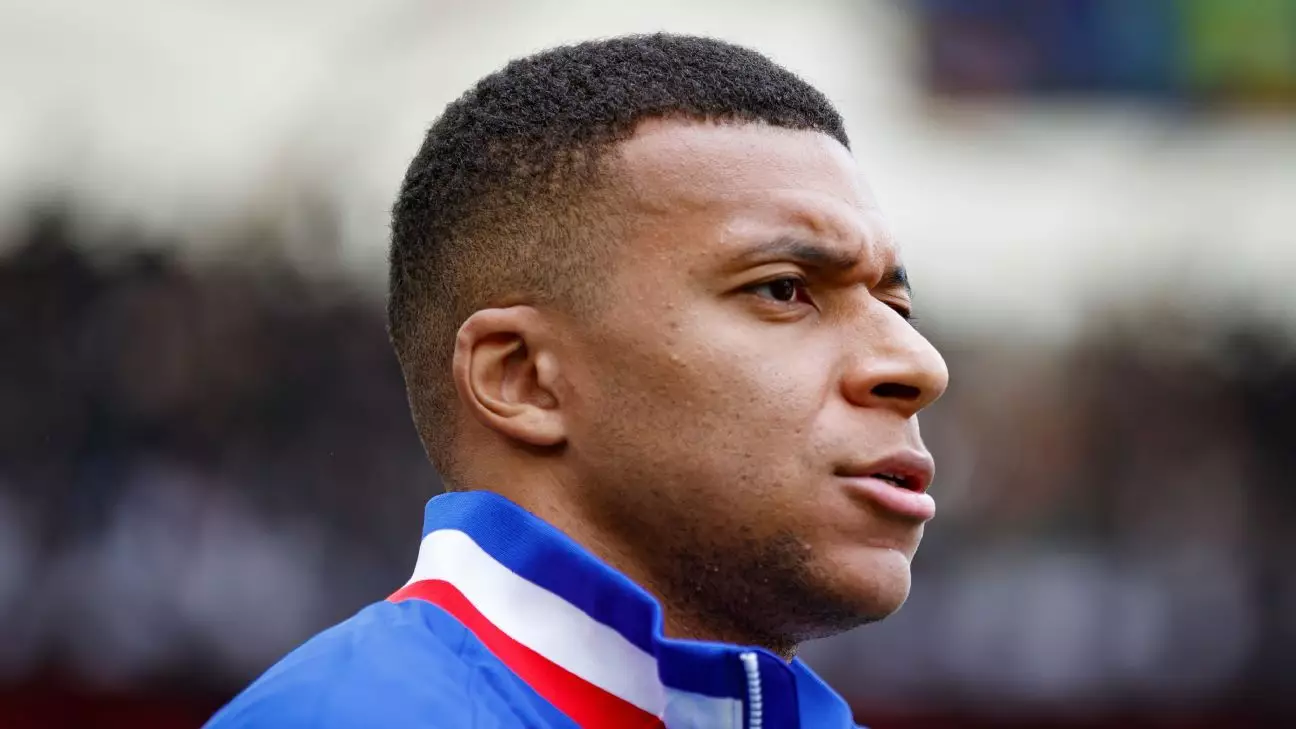Kylian Mbappé, one of the most celebrated footballers globally, has taken a brave step in asserting his rights and dignity by filing a legal complaint against Paris Saint-Germain (PSG). He has accused the club of moral harassment, a serious claim that has drawn significant attention from both fans and analysts alike. The Paris prosecutor’s office confirmed this allegation, shedding light on a tumultuous period in the star’s career. Just when it appeared that the tension between player and club could dissipate, Mbappé’s revelations opened Pandora’s box, unveiling the deeper issues of player treatment, contractual obligations, and the mechanisms that govern professional football.
Financial Disputes and Contractual Complexity
At the core of Mbappé’s legal filing is a demand for €55 million ($61 million) in unpaid wages—a figure that illustrates not just financial discrepancies but also points to how contracts in professional football can become entangled in emotional and psychological warfare. While the vast sums associated with player salaries often overshadow the human side of the sport, Mbappé’s complaint digs into a grim reality faced by many athletes: they are often caught in a web of promises and disappointments. As a player who delivered stellar performances and broke records during his tenure at PSG, it is no surprise that Mbappé expects to be rewarded fairly, both financially and in terms of respect and valuation.
The Isolation Tactic: Understanding ‘Lofting’
The term “lofting,” which Mbappé cited in his legal documentation, brings to the forefront an unsettling practice within professional sports. Defined as the act of isolating a player from the main squad for various reasons—sporting, administrative, or disciplinary—lofting is not only detrimental to a player’s mental health but also fundamentally undermines their professional integrity. In Mbappé’s case, being sidelined as a result of his decision not to extend his contract suggested a retaliatory tactic from PSG, creating an environment fraught with anxiety and uncertainty. Such practices can drive wedges between players and clubs, reflecting a lack of concern for the individual behind the athlete.
Negotiation and Discontent
Mbappé’s decision not to extend his contract after initially committing to PSG in 2022—and announcing his intention not to utilize the option for an additional year—triggered a series of unfortunate events. The emotional weight of broken promises, such as the club’s failure to sign key players that were said to be part of his vision, culminated in a strained relationship between the player and PSG. This mutual dissatisfaction only exacerbates the fallout from Mbappé’s eventual departure to Real Madrid. His journey with PSG, where he scored an astounding 256 goals, ended not merely in applause but in a chorus of boos from fans indicating a complex emotional aftermath.
Turning Point: The Transfer Standoff
The summer of 2023 marked a pivotal moment for Mbappé and PSG, characterized by a tumultuous transfer standoff. The ramifications of his decision not to extend his contract placed both the player and the club in an untenable situation: PSG needed to capitalize on Mbappé’s market value before risk losing him for nothing, while Mbappé rejected a staggering €300 million move to Saudi Pro League side Al Hilal. His refusal intensified the battle over the direction of his career and raised questions about loyalty, ambition, and the underlying tensions that can plague star players in today’s hyper-commercialized football landscape.
The Emotional Side of Professional Sports
Amidst the glitzy allure of football’s fortunes and fame lies an undeniable human aspect often overlooked: the mental and emotional well-being of players. Mbappé’s recent actions and the subsequent legal proceedings reveal a vulnerability rarely portrayed in the media—a determination to confront not just financial grievances but also the treatment received at the hands of a club that once reverberated with promise. As players navigate the pressures of performance alongside the complexities of contractual obligations, stories like Mbappé’s serve as important reminders of the systemic issues requiring urgent attention.
While Kylian Mbappé’s explosive allegations against PSG encapsulate a moment rife with tension and conflict, they also ignite a critical conversation about the treatment of players, their rights, and the moral responsibilities of clubs in professional sports. In a world where athletes are often seen as mere contracts and numbers, Mbappé’s stand is a push for respect, justice, and dignity, indicating perhaps that even the mightiest of clubs must answer not just to their fans, but also to their players.


Leave a Reply